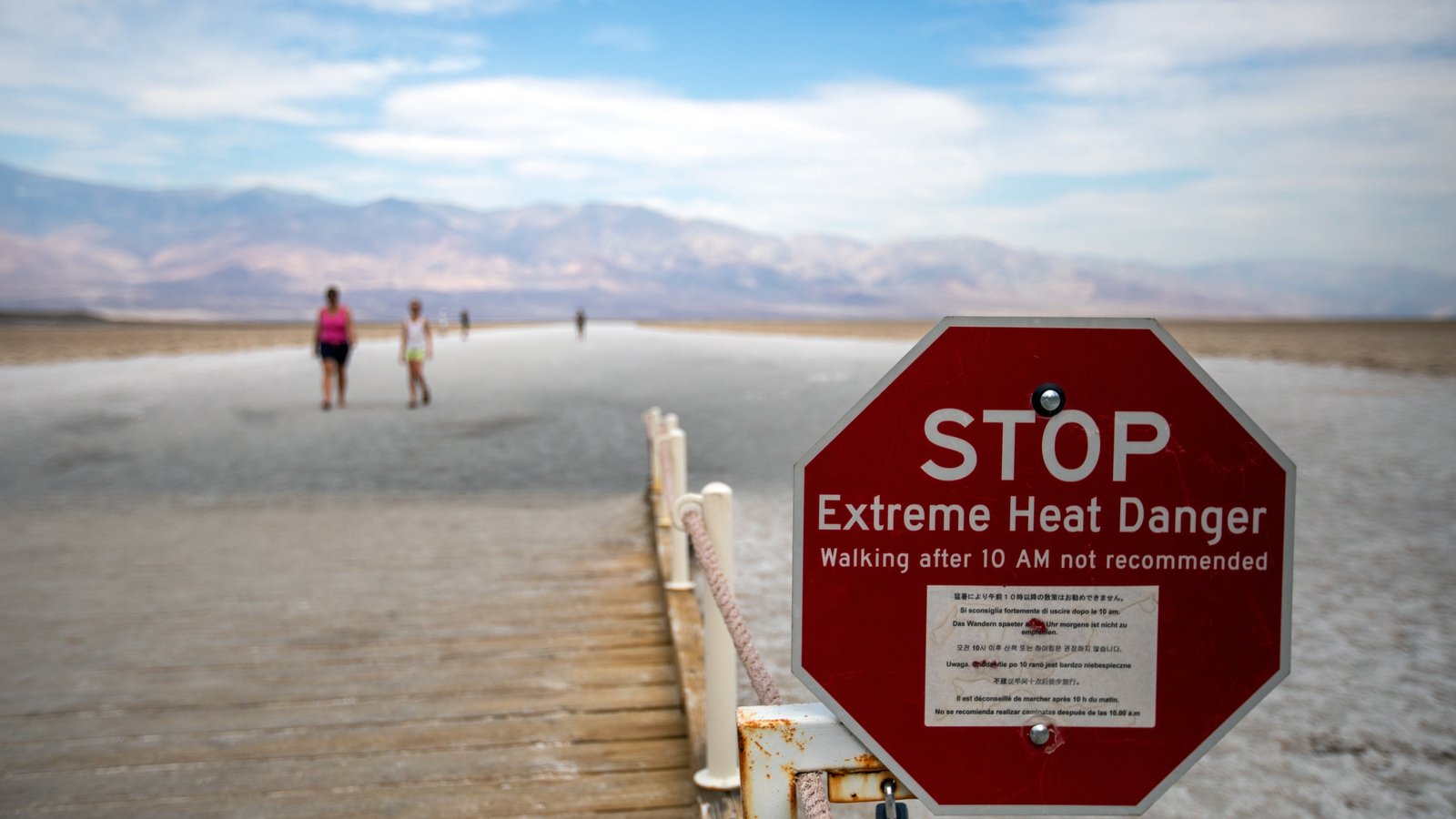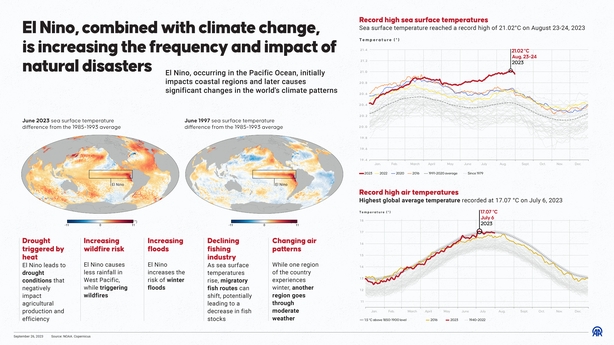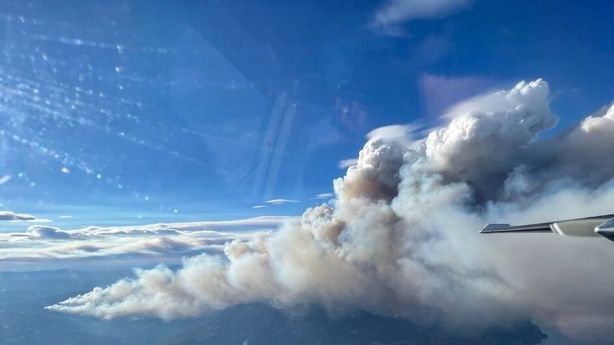2023 hottest year on record as Earth nears 1.5C limit

Global temperatures last year reached exceptionally high levels averaging close to 1.5 degrees above pre-industrial levels, according to new analysis from the EU’s climate change service, Copernicus.
The report highlights several record-breaking conditions, including the hottest month on record and daily global temperature averages briefly surpassing pre-industrial levels by more than 2 degrees Celsius.
2023’s average temperature was 14.98C, which beats the previous hottest year set in 2016 by 0.17C.

The global community committed in the Paris Agreement to try and limit warming to 1.5C above pre-industrial levels as it gives the best chance of stabilising the climate and reducing the damage to people and wildlife.
This measurement is taken as a decadal average so one year going beyond this does not mean the treaty has failed.
July 2023 was likely the hottest month in the last 120,000 years – almost as long as modern humans have existed – while Antarctic sea ice has been at an historic low.

Each month from June through to December was hotter than any other corresponding month in a previous year, while every continent except Australia and many ocean areas saw record-breaking annual air temperatures for the year.
El Nino, a cyclical natural phenomenon in the tropical eastern Pacific which brings heat to the surface, added an extra warming effect to the atmosphere and oceans to that from greenhouse gas emissions, which continue to rise.

Scientists are urging the global community to radically cut these emissions and prevent further warming as each fraction of a degree further destabilises the Earth’s climate.
Although changes of 1.5C in peoples’ day-to-day experience of air temperature is negligible, on a global average it has a very different meaning and the smallest changes can have large ramifications.

Some climate analysts have likened it to changes in body temperature whereby a difference of 1C can separate a healthy person from one with a fever.
Copernicus Deputy Director Samantha Burgess, , said: “2023 was an exceptional year with climate records tumbling like dominoes.
“Not only is 2023 the warmest year on record, it is also the first year with all days over 1C warmer than the pre-industrial period.
“Temperatures during 2023 likely exceed those of any period in at least the last 100,000 years.”

Emissions from wildfires also increased by 30% last year mainly because of the huge blazes across Canada.
There were marine heatwaves across much of the North Atlantic, including off the British and Irish coastlines, as well as in the Caribbean and the Indian and Pacific Oceans.
Concentrations of carbon dioxide in the atmosphere rose to a new height of 419 parts per million while methane reached a concentration of 1902 parts per billion.
Additional reporting PA





